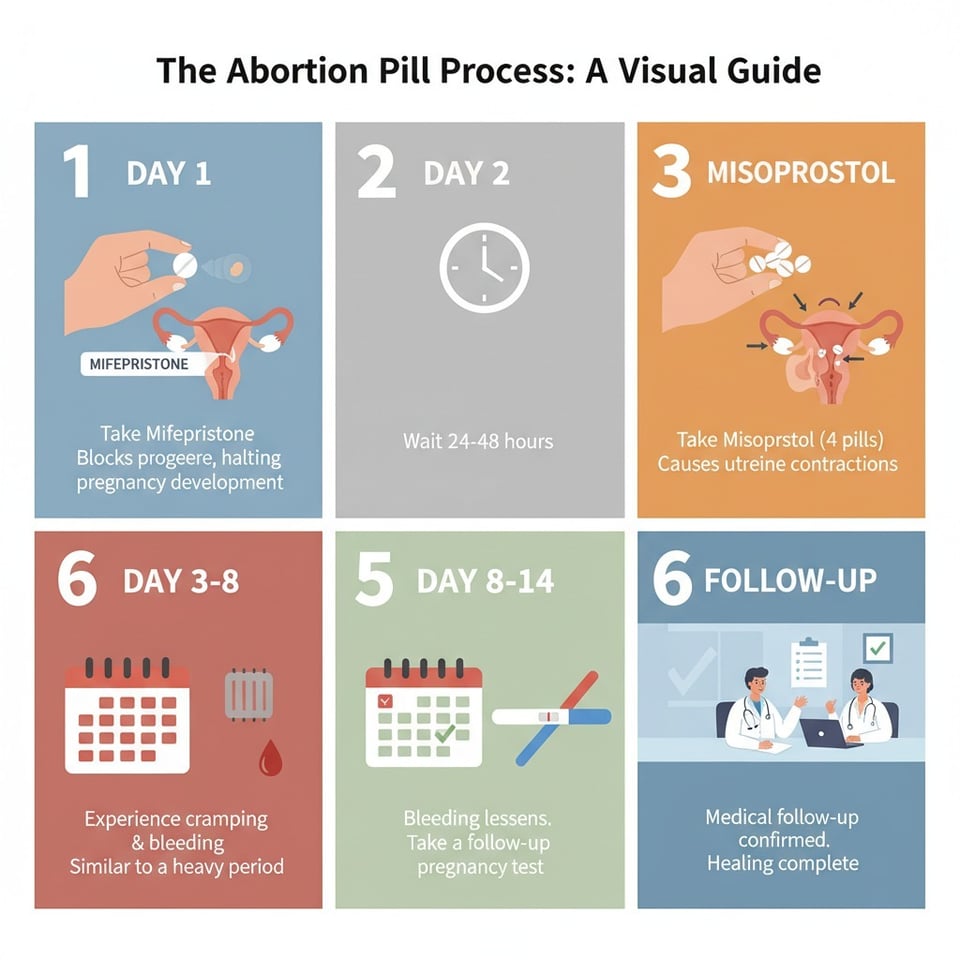Understanding the signs that indicate a successful medical abortion is crucial for your health and...
Cost Comparison of Medical vs. Surgical Abortion Methods

Navigating the financial aspects of abortion methods can be overwhelming. This guide aims to provide a clear comparison to help you make an informed decision.
Understanding the Different Abortion Methods
When considering an abortion, it's essential to understand the different methods available. Generally, abortions can be categorized into two types: medical and surgical. Medical abortions involve taking medication to terminate the pregnancy and are typically used in the early stages, up to 9-10 weeks of gestation. Surgical abortions, on the other hand, involve a procedure performed by a healthcare professional to remove the pregnancy from the uterus and can be used at various stages of gestation.
Each method has its own set of procedures, recovery times, and considerations. For instance, medical abortions are non-invasive and can sometimes be managed at home, making them a more private option. Surgical abortions, such as Manual Vacuum Aspiration (MVA) and Dilation & Curettage (D&C), require clinic visits and involve anesthesia, but they are often quicker and can be used later in pregnancy. Understanding these differences is crucial in making an informed decision about what might be best for your situation.
Factors Influencing Abortion Costs
Several factors can influence the cost of an abortion, making it essential to consider them when planning for the procedure. One significant factor is the type of abortion method chosen. Medical abortions typically cost less than surgical abortions due to the nature of the procedure and the resources required.
Other cost-influencing factors include the gestational age of the pregnancy, the geographical location of the clinic, and whether the procedure is performed in a private or public healthcare setting. Additional costs may arise from necessary pre-abortion consultations, follow-up appointments, and any required laboratory tests. It's also important to consider potential costs for pain management and anesthesia in surgical abortions.
Medical Abortion: What to Expect Financially
Medical abortions generally involve two medications: Mifepristone and Misoprostol. These medications are administered to terminate an early pregnancy and can be done at home following a consultation with a healthcare provider. The cost of a medical abortion can range from $300 to $800, depending on various factors such as location and clinic fees.
In addition to the medication cost, there may be expenses related to the initial consultation, required follow-up visits to ensure the procedure's success, and any additional support or counseling services. Some clinics may include these costs in a package price, while others may charge them separately. It's essential to inquire about all potential costs upfront to avoid any unexpected financial burdens.
Surgical Abortion: Breaking Down the Costs
Surgical abortions are more complex procedures that often come with higher costs compared to medical abortions. The cost for a surgical abortion can range from $500 to $2,000 or more, depending on factors such as the gestational age of the pregnancy and the type of procedure performed.
The expenses for a surgical abortion typically include the procedure itself, anesthesia, facility fees, and any necessary pre- and post-procedure care. Additional costs may also arise from diagnostic tests and follow-up appointments. It's crucial to discuss all fees with your healthcare provider to understand the full financial scope of the procedure.
Insurance and Financial Assistance for Abortion Services
Navigating insurance coverage for abortion services can be complex, as it varies widely depending on the provider and plan. Some insurance plans may cover part or all of the costs associated with abortion, while others may not provide any coverage. It's important to contact your insurance provider directly to understand your benefits and coverage details.
For those without insurance or with limited coverage, financial assistance programs and funds may be available to help offset the costs. Many clinics, including Allyssa Women Clinic, offer sliding scale fees based on income, payment plans, and connections to local or national organizations that provide financial support for abortion services. Don't hesitate to ask your clinic about available resources to ensure you receive the care you need without undue financial stress.
.png?width=200&height=65&name=Untitled%20design%20(68).png)


